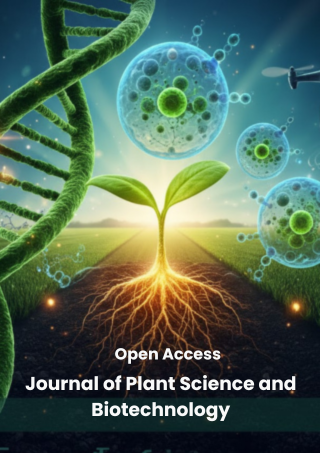Plant Physiology and Biochemistry
Plant physiology and biochemistry form the foundation of modern plant science, exploring how plants grow, develop, and respond to their environment at both molecular and systemic levels. Research in this area investigates the fundamental processes that drive photosynthesis, respiration, nutrient uptake, hormone regulation, and cellular signaling. By understanding the biochemical networks that regulate plant metabolism such as protein activity, secondary metabolite synthesis, and enzymatic pathways scientists can unravel the mechanisms behind stress tolerance, flowering, seed germination, and overall crop productivity. This field also integrates advanced analytical tools and molecular approaches to study interactions between biochemical pathways and physiological functions under diverse conditions, including drought, salinity, temperature fluctuations, and pathogen attack. Applications of plant physiology and biochemistry are broad, ranging from improving crop yield and nutritional quality to developing climate-resilient varieties and identifying bioactive compounds with pharmaceutical potential. By bridging basic biological understanding with applied agricultural and industrial biotechnology, research in plant physiology and biochemistry continues to play a critical role in ensuring food security, sustainability, and innovation in plant-based sciences.
Article Processing Timeline
| 2-5 Days | Initial Quality & Plagiarism Check |
| 15 Days |
Peer Review Feedback |
| 85% | Acceptance Rate (after peer review) |
| 30-45 Days | Total article processing time |
Journal Flyer


